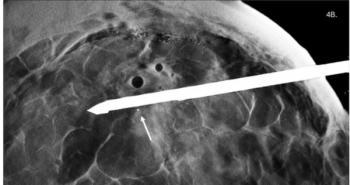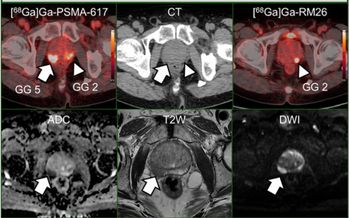
MRI Before Breast Cancer Surgery Results in More Drastic Treatments
Women with breast cancer who undergo preoperative MRI have a higher rate of bilateral mastectomies and contralateral prophylactic mastectomies than women who aren’t scanned.
Older women with breast cancer are undergoing preoperative MRIs more frequently, which is resulting in a higher rate of bilateral cancer diagnoses and more invasive surgical procedures, according to a study published in the journal Breast Cancer Research and Treatment.
Researchers from the Yale University of Medicine undertook a study to determine trends in MRI use according to age and type of surgery.
“Patient concern about recurrence and survival must be balanced with the increased risk for complications associated with more aggressive cancer surgery, particularly when there is no proven benefit of the more aggressive option,” lead author Cary Gross, MD, said in a release. Gross is an associate professor of internal medicine at Yale Cancer Center.
The researchers reviewed the files of 72,461 women aged 67 to 94, who were diagnosed with breast cancer between 2000 and 2009. All were Medicare beneficiaries. Information was obtained on:
- Association between MRI and surgical approach;
- Breast-conserving surgery (BCS) versus mastectomy;
- Bilateral versus unilateral mastectomy; and
- Use of contralateral prophylactic mastectomy.
The findings showed that 10.1 percent of the cohort underwent breast MRI and preoperative MRIs increased from 0.8 percent in 2000 to 2001 to 25.2 percent in 2008 to 2009. Researchers found that women who underwent an MRI were more likely to subsequently undergo more aggressive surgical treatment.
Among the women who had mastectomies, having had a preoperative MRI was significantly associated with an increased likelihood of being diagnosed with bilateral cancer (9.7 percent) compared to women who did not have an MRI (3.7 percent). Women who received the MRIs were also more likely to have bilateral mastectomy (12.5 percent) compared to women who did not have an MRI (4.1 percent).
In addition, women who underwent MRIs were more likely to have a prophylactic mastectomy of the unaffected breast (6.9 percent) compared with women who did not have MRIs (1.8 percent).
“There has been no randomized controlled clinical trial demonstrating improved outcomes for women who undergo preoperative breast MRI at any age,” said Brigid Killelea, MD, assistant professor of surgery at Yale and first author on the study. “Breast conserving therapy, when feasible, remains the preferred approach for women with early stage breast cancer.”
Newsletter
Stay at the forefront of radiology with the Diagnostic Imaging newsletter, delivering the latest news, clinical insights, and imaging advancements for today’s radiologists.














